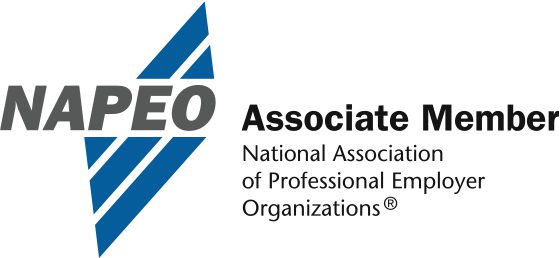The integration of Artificial Intelligence (AI) into Human Resources (HR) represents a transformative leap toward automating and enhancing HR operations. AI tools are currently used by more than 70% of HR professionals to help them automate tasks like records management, payroll, and recruitment. With its unparalleled ability to automate complex processes, analyze vast amounts of data, and provide actionable insights at unprecedented speeds, AI is revolutionizing HR operations.
And it isn’t going anywhere anytime soon. With a vast majority of HR professionals embracing an increase in their use of AI tools in the future, it’s clear that the AI revolution is just beginning. Aspen HR is at the forefront of it, harnessing the future of AI use in HR to elevate efficiency and effectiveness across a variety of HR functions.
Revolutionizing HR Through AI Tools and Software
AI-driven tools and software are redefining critical HR tasks, enabling HR professionals to streamline their workflows, significantly increasing the efficiency of traditional practices, and setting new benchmarks for their effectiveness. By adopting these technologies, Aspen HR has not only optimized our own operations but also ensured that our clients stay ahead in the competitive landscape of talent management.
AI-Driven Recruitment Tools
Advanced AI-driven recruitment tools are capable of significantly streamlining the talent acquisition process. These tools utilize machine learning algorithms to scan resumes, evaluate candidate profiles, and match qualifications with job requirements, significantly reducing the time and effort required for screening applicants.
Employee Engagement Software
Understanding and improving employee engagement is crucial for any organization’s success. AI employee engagement software can provide real-time insights into employee sentiment and engagement levels.
These platforms analyze survey data using natural language processing (NLP) to identify trends and areas for improvement, enabling HR professionals to implement targeted engagement strategies. By leveraging these insights, they can foster a more positive work environment, increase employee satisfaction, and reduce turnover rates.
Performance Evaluation Systems
Performance evaluation is another area where HR professionals can leverage AI to deliver superior results. AI-driven performance management systems can automate and personalize the performance review process.
These platforms facilitate continuous feedback, goal setting, and progress tracking, all while using AI to provide managers and employees with actionable insights. This approach not only streamlines the evaluation process but also promotes a culture of continuous improvement and personal development.
AI for HR Analytics and Insights
Beyond these specific applications, Aspen HR also integrates AI tools for HR to help improve analytics and insights. HRIS tools like Aspen Cloud can use AI to analyze data across the entire employee lifecycle, from hiring to retirement. This enables Aspen HR to predict trends, such as turnover rates or talent gaps, and make data-driven decisions to address these challenges proactively.
Strategic Advantages of AI in HR Solutions
The strategic deployment of AI for HR solutions offers a multitude of advantages:
Providing Strategic Insights
AI’s ability to analyze complex datasets has proven invaluable for HR departments, offering insights that were previously unattainable. AI-driven analytics can help HR professionals better understand workforce trends, predict future needs, and identify areas for improvement. This proactive approach to HR management enables Aspen HR to support its clients in planning more effectively for their future workforce needs.
Automating Administrative Tasks
One of the most immediate benefits of AI in HR is the automation of time-consuming administrative tasks. This not only reduces the potential for human error but also frees up HR professionals to focus on more strategic tasks. For instance, Aspen HR uses AI-powered platforms to streamline onboarding processes, ensuring new hires have a smooth transition into their roles while compliance requirements are met efficiently.
Enhancing Decision-Making Processes
AI enhances HR decision-making by providing data-driven insights and predictive analytics. By utilizing AI tools that assess the skills and potential of current and prospective employees, HR professionals can make informed decisions about whom to hire, promote, or develop further. This ensures that talent management decisions are based on objective data, leading to better outcomes for both the organization and its employees.
Ethical and Implementation Considerations for AI in HR
The integration of AI into HR practices brings with it not just opportunities for innovation and efficiency, but also significant ethical considerations.
Aspen HR is acutely aware of the critical importance of navigating these concerns thoughtfully, particularly when it comes to data privacy, bias in AI applications, and the broader ethical implications of AI in the workplace. The successful implementation of AI tools into HR strategies requires a careful, methodical approach that respects both the potential and limitations of the technology itself.
Ethics & Data Privacy
In the era of AI, safeguarding data privacy is paramount. The protection of personal and sensitive employee information must be prioritized by employing robust data security measures and adhering to stringent data protection regulations. AI systems are designed with user privacy in mind, ensuring that employee data is handled with the utmost care and confidentiality.
Bias in AI applications poses another significant ethical challenge. However, AI tools can also be developed to minimize bias, which involves rigorous testing and continuous monitoring of the AI’s algorithms to ensure that they operate fairly and without prejudice. By addressing these biases pre-emptively, Aspen HR ensures that each of our AI-driven HR processes, from recruitment to performance evaluations, are equitable and inclusive.
Implementation Strategies
The successful implementation of AI into HR strategies requires a strategic, thoughtful approach. Aspen HR’s proven methodologies emphasize the importance of aligning AI initiatives with organizational goals and HR objectives. This starts with a clear understanding of the specific challenges and opportunities within the HR function that AI can address.
A phased implementation approach is often most effective, starting with pilot projects that allow for the evaluation of AI tools in real-world HR scenarios. This enables us to gather insights and feedback, which inform the broader rollout of any AI solutions across HR functions. Training and change management are also critical components of any effective implementation strategy, ensuring that HR professionals and employees alike are prepared for and supportive of the transition to AI-enhanced processes.
Moreover, we advocate for a collaborative approach to AI implementation, involving stakeholders from across the organization. This ensures that AI initiatives are not only technically successful but also embraced by the organization as a whole, fostering a culture of innovation and continuous improvement.
Preparing for the AI-Driven Future of HR
Aspen HR is at the forefront of this transformation, actively shaping the future of AI in HR and ensuring that our clients aren’t just ready for what’s next, but are pioneers alongside us in adopting these emerging technologies. By staying ahead of the AI curve, we can help ensure that our partners are equipped with the most innovative and effective HR solutions possible.
The future trends in AI for HR point towards even more personalized, efficient, and strategic HR functions.
- Predictive analytics will play a larger role in talent management, enabling HR professionals to anticipate employee needs, predict turnover, and identify potential leaders within the organization.
- AI-driven personalization will enhance employee experiences, offering tailored learning and development paths, and personalized benefits packages.
- AI will no doubt also facilitate a more data-driven approach to diversity and inclusion, helping organizations to identify and address unconscious biases and build more inclusive workplaces.
Let Aspen HR Be Your Guide to AI
The AI-driven future of HR is full of potential, offering unprecedented opportunities for innovation, efficiency, and strategic impact. Aspen HR is embracing this transformation, providing the insights, tools, and training necessary to ensure businesses and HR professionals are prepared for the evolution of HR roles and practices.
By leveraging AI tools for HR, we’re able to ensure that our clients are not just future-ready, but are also leading the way alongside us by adopting transformative technologies that can streamline operations and provide even clearer strategic insights that will drive future success.
Partner with Aspen HR for AI-Enhanced HR Services
Want to harness the power of AI tools for HR? Connect with an expert at Aspen HR today.







